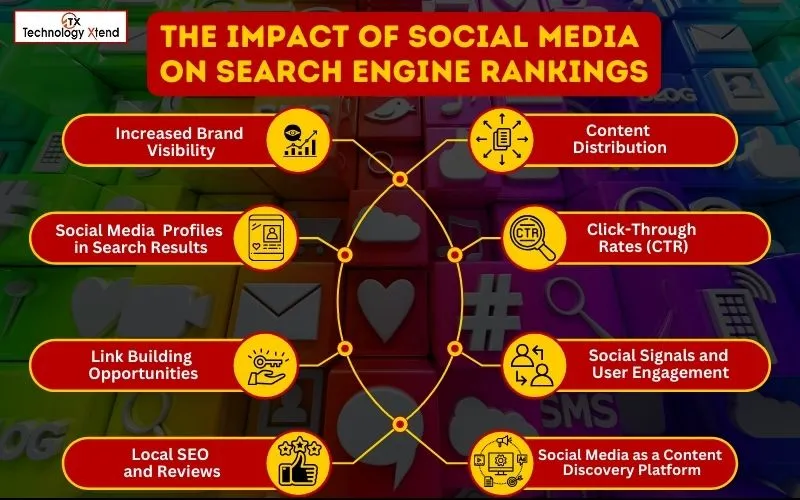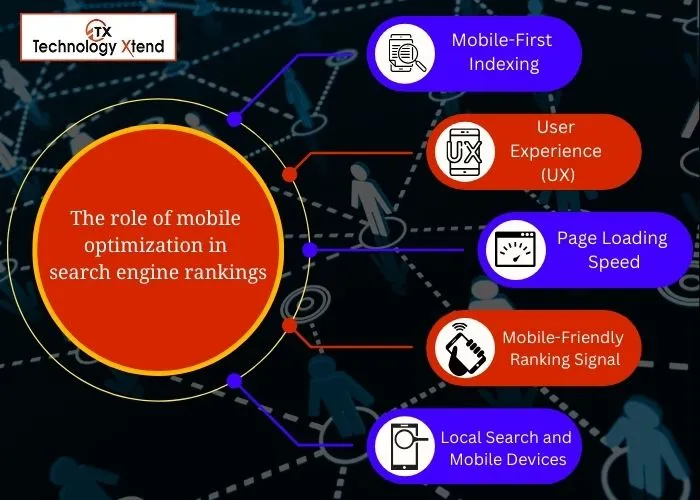
Technology XtendSearch Engines Evolution: From Yahoo to Google and Beyond
In a world where information is at our fingertips, search engines have become an integral part of our daily lives. From the early days of Yahoo and AltaVista to the dominance of Google, the evolution of search engines has shaped the way we navigate the vast digital landscape. With each passing year, these powerful tools have become smarter, more efficient, and more personalized, adapting to our needs and revolutionizing the way we find information. But the journey doesn't end with Google. As technology continues to advance, search engines are evolving at an unprecedented pace, incorporating artificial intelligence, voice search, and mobile optimization to provide us with even more accurate and relevant results. Join us as we delve into the fascinating history and future of search engines, uncovering the innovations that have transformed the way we search, discover, and connect in the digital age.
Early search engines: A brief history of Yahoo, AltaVista, and Ask Jeeves
Before Google became a household name, there were several other search engines that dominated the early days of the internet. One such search engine was Yahoo, which started as a simple directory of websites in 1994. Yahoo quickly gained popularity and became a go-to search engine for many internet users. With its human-curated directory and powerful search capabilities, Yahoo was a pioneer in the field.
Another popular search engine during this time was AltaVista. Launched in 1995, AltaVista quickly gained a reputation for its advanced search features and impressive indexing capabilities. It was the first search engine to introduce features like advanced search operators, image search, and multimedia indexing. AltaVista was a game-changer in the search engine industry, setting the stage for the advancements to come.
Ask Jeeves, later known as Ask.com, introduced a unique twist to search engines by allowing users to ask questions in plain English. It relied on a question-and-answer format, aiming to provide users with more relevant and personalized search results. Although Ask Jeeves didn't achieve the same level of popularity as Yahoo or AltaVista, it played a significant role in shaping the future of search engines.
Despite their early successes, these search engines faced challenges in providing accurate and relevant search results as the internet grew exponentially. This paved the way for a new player to enter the scene and revolutionize the search engine industry.
The rise of Google: How Google revolutionized the search engine industry
In 1998, two Stanford University students, Larry Page and Sergey Brin, set out to create a search engine that would revolutionize the way we find information online. They founded Google, a search engine that would rely on an algorithm called PageRank to determine the relevance of webpages. This algorithm analyzed the number and quality of links pointing to a webpage, considering them as votes of confidence from other websites.
Google's PageRank algorithm proved to be a game-changer. It provided more accurate and relevant search results by considering the authority and popularity of webpages. This approach was a significant departure from the keyword-centric algorithms used by other search engines at the time. Google's focus on backlinks and relevance propelled it to the top, quickly surpassing its competitors in terms of search quality.
As Google gained popularity, it became synonymous with the act of searching. The phrase "Google it" entered our everyday language, highlighting the dominance and influence of the search engine. Google's clean and minimalist interface, combined with its lightning-fast search results, made it the search engine of choice for millions of users worldwide.
Google's algorithm updates: From PageRank to Panda and Penguin
To maintain its search quality and relevance, Google continuously updates its search algorithm. These updates aim to improve the overall user experience and combat spammy and low-quality websites. Some of the most significant algorithm updates include:
☛ Panda: Launched in 2011, Google Panda targeted websites with low-quality content and spammy practices. It aimed to reward high-quality websites by demoting those with thin, duplicate, or irrelevant content.
☛ Penguin: Introduced in 2012, Google Penguin focused on penalizing websites that engaged in manipulative link-building practices. It targeted websites with unnatural backlink profiles, aiming to level the playing field and reward websites with legitimate and natural link profiles.
☛ Hummingbird: Announced in 2013, Google Hummingbird aimed to understand the user's search intent better. It focused on providing more relevant search results by considering the context and meaning behind the search queries.
These algorithm updates significantly impacted the search engine optimization (SEO) industry, forcing website owners and marketers to adapt their strategies to meet Google's evolving requirements. The updates highlighted the importance of quality content, user experience, and ethical SEO practices.
The impact of social media on search engine rankings
As social media platforms gained popularity, search engines started to consider social signals as a ranking factor. Social signals, such as likes, shares, and comments, were seen as indicators of a webpage's popularity and relevance. Search engines began incorporating these signals into their algorithms, giving more weight to webpages with strong social engagement.

Social media platforms, such as Facebook and Twitter, also started to appear in search engine results, providing users with real-time information and the latest news. This integration of social media and search engines blurred the lines between the two, creating a more dynamic and interconnected digital ecosystem.
However, as the importance of social signals grew, so did the potential for abuse. Some marketers and website owners started to engage in manipulative practices, buying fake likes and shares to boost their rankings. In response, search engines like Google have become more sophisticated in detecting and penalizing these fake social signals, emphasizing the need for genuine engagement and quality content.
The emergence of voice search: The role of Siri, Alexa, and Google Assistant
With the rise of smartphones and smart speakers, voice search has become an increasingly popular way to find information online. Virtual assistants like Siri, Alexa, and Google Assistant have made it easier than ever to perform voice searches and get instant answers to our queries.
Voice search is changing the way search engines process and deliver information. Instead of relying solely on text-based queries, search engines now need to understand and interpret spoken language. This shift has led to advancements in natural language processing and machine learning, allowing search engines to better understand user intent and provide more accurate and personalized search results.
The increased use of voice search has also influenced search engine optimization strategies. Website owners and marketers now need to optimize their content for voice search, considering the conversational nature of voice queries and the need to provide concise and informative answers.
The future of search engines: Artificial intelligence and machine learning
As technology continues to advance, search engines are embracing artificial intelligence (AI) and machine learning to enhance the search experience further. AI-powered search engines can understand user intent, context, and preferences, providing highly personalized search results.
Machine learning algorithms analyze vast amounts of data to identify patterns and make predictions, allowing search engines to continuously improve their understanding of user behavior and preferences. This enables search engines to deliver more relevant and tailored search results, improving the overall user experience.
Search engines are also becoming more proactive, anticipating user needs and providing personalized recommendations. For example, Google's personalized search feature takes into account a user's search history, location, and preferences to deliver customized search results.
In addition to personalization, search engines are also focusing on delivering instant answers and rich snippets directly on the search results page. This reduces the need for users to click through multiple webpages to find the information they're looking for, providing a more efficient and user-friendly search experience.
The role of mobile optimization in search engine rankings
With the increasing use of smartphones and tablets, mobile optimization has become a crucial factor in search engine rankings. Search engines prioritize mobile-friendly websites, as they provide a better user experience on smaller screens.

Mobile optimization involves designing websites that are responsive and adaptable to different screen sizes. It includes optimizing page load speed, ensuring easy navigation, and providing a seamless user experience across devices.
In 2015, Google introduced mobile-friendliness as a ranking signal, encouraging website owners to prioritize mobile optimization. Since then, mobile-first indexing has become the norm, with search engines primarily using the mobile version of websites to determine their rankings.
As mobile usage continues to rise, website owners and marketers must prioritize mobile optimization to ensure their websites rank well in search engine results and provide a positive user experience.
The influence of user experience on search engine results
In recent years, search engines have been placing more emphasis on user experience (UX) as a ranking factor. User experience refers to how users interact with a website and how easy and enjoyable it is for them to find the information they're looking for.
Search engines analyze various UX signals, such as bounce rate, time on page, and click-through rates, to determine the quality and relevance of a webpage. Websites that provide a positive user experience are more likely to rank higher in search engine results.
To improve user experience, website owners and marketers must focus on factors such as website speed, intuitive navigation, clear and engaging content, and mobile optimization. By prioritizing UX, websites can not only improve their search rankings but also enhance overall user satisfaction and engagement.
Conclusion
The evolution of search engines has transformed the way we search, discover, and connect in the digital age. From the early days of Yahoo and AltaVista to the dominance of Google, search engines have become smarter, more efficient, and more personalized, adapting to our needs and providing us with accurate and relevant information.
But the journey doesn't end with Google. As technology continues to advance, search engines are evolving at an unprecedented pace. Artificial intelligence, voice search, mobile optimization, and user experience are shaping the future of search engines, providing us with even more advanced and personalized search experiences.
Related Articles









































